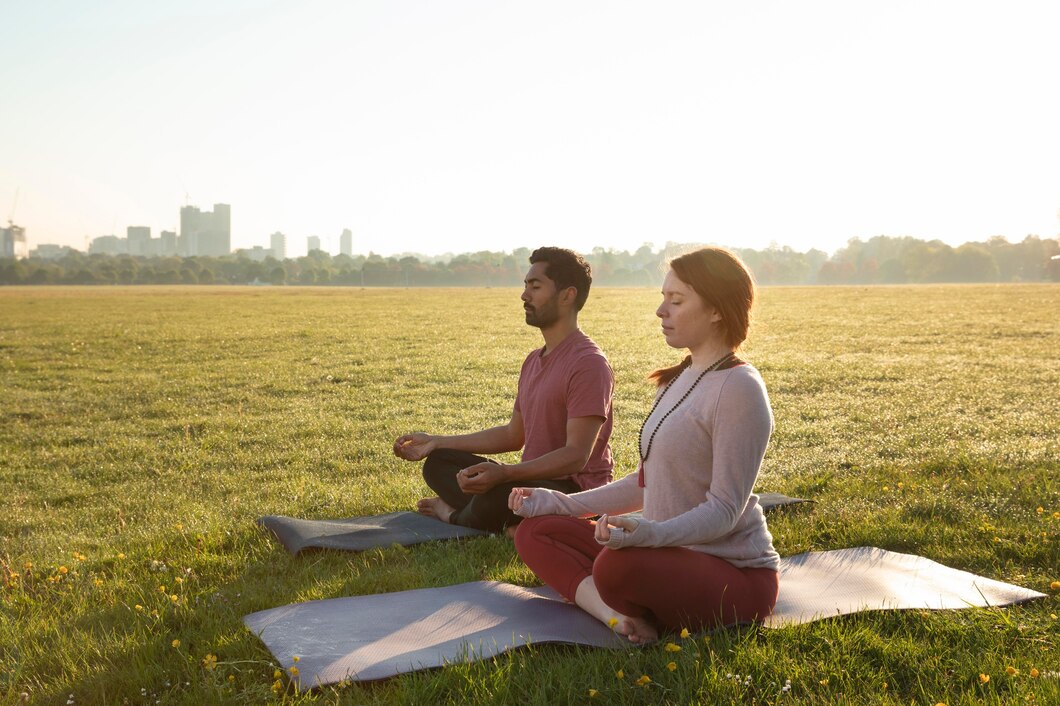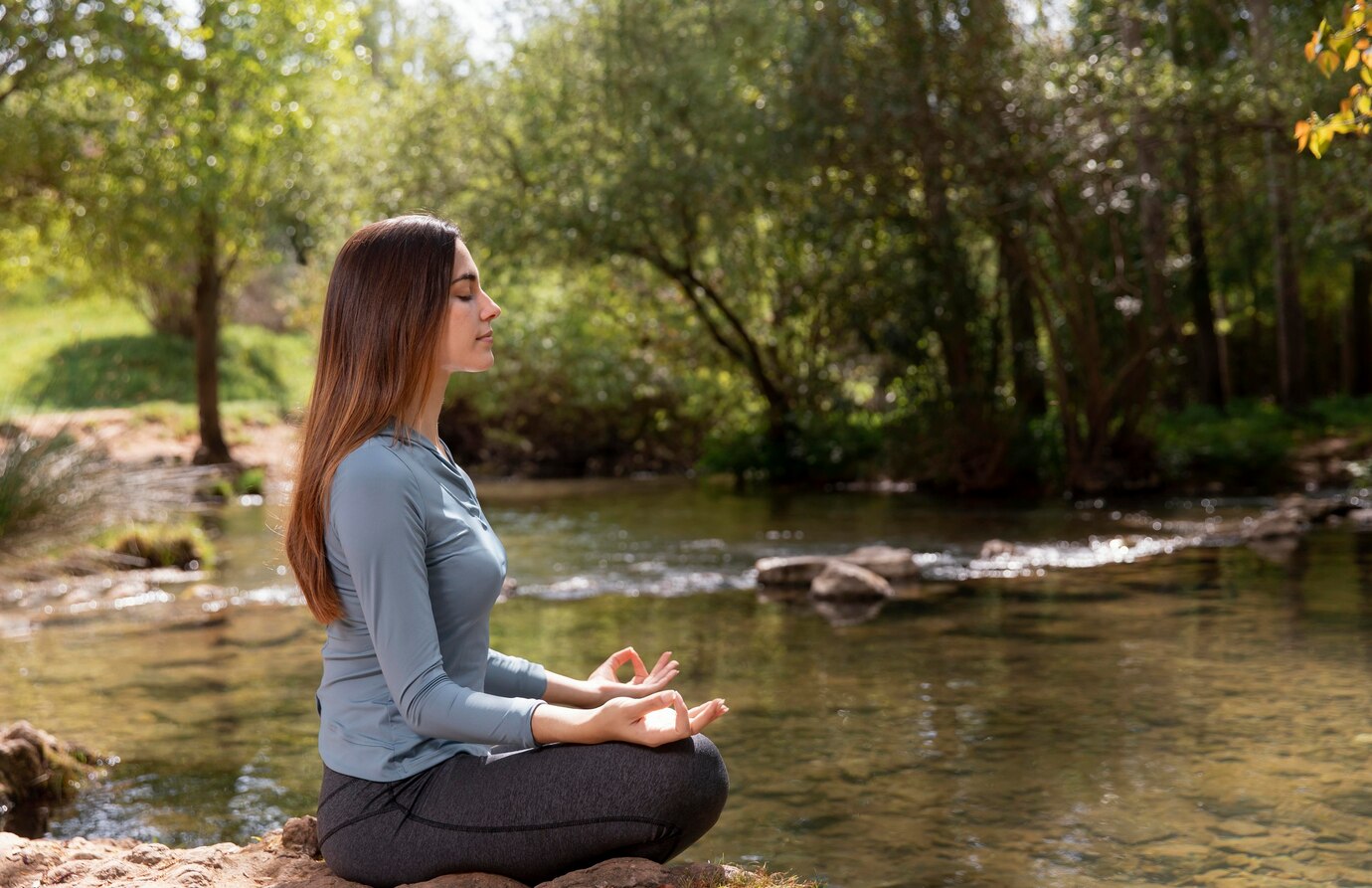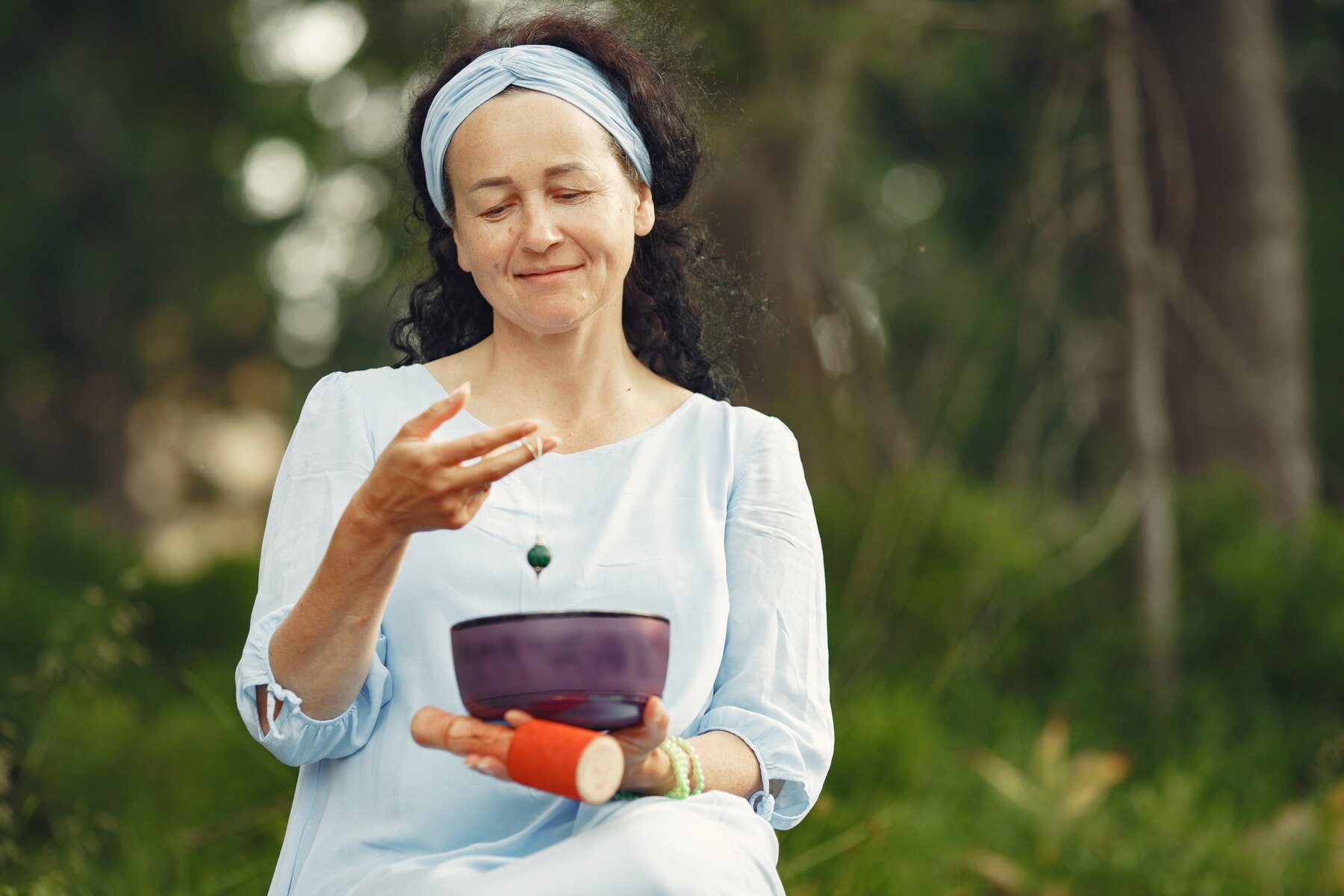How to Use Nature Therapy to Improve Mental Well-Being
In today’s fast-paced digital world, stress, anxiety, and emotional fatigue are increasingly common. Many people seek ways to restore balance and improve their mental well-being. One effective method is nature therapy, also known as eco-therapy. Research shows a clear connection between being in nature and better mental health. Research reveals that nature’s embrace can melt

In today’s fast-paced digital world, stress, anxiety, and emotional fatigue are increasingly common. Many people seek ways to restore balance and improve their mental well-being. One effective method is nature therapy, also known as eco-therapy. Research shows a clear connection between being in nature and better mental health.
Research reveals that nature’s embrace can melt away stress and elevate spirits. Step outside, and let the sunlight sprinkle joy upon your day.
Nature therapy invites you to reconnect with the great outdoors, rekindling harmony within. This guide uncovers the wonders of eco-therapy, showcasing grounding techniques for clear minds.
Discover practical ways to weave nature therapy into your everyday life. Elevate your well-being and let the serenity of the wild transform you.
Understanding Nature Therapy and Its Benefits

What Is Nature Therapy?
Nature therapy, also known as eco-therapy, is a breath of fresh air. It harnesses the healing power of natural settings to uplift your spirit. This approach thrives on the understanding that our well-being dances in sync with nature. Immersing ourselves in the great outdoors brings myriad mental and physical perks. It nurtures emotional balance and ushers in waves of relaxation, inviting you to unwind.
Types of Nature Therapy
- Forest Bathing (Shinrin-Yoku): This Japanese practice helps you relax and reduce stress by spending time in a forest.
- Horticultural Therapy: Engaging in gardening and plant care to boost mood and cognitive function.
- Wild Swimming: Swim in natural waters to refresh your mind and boost emotional strength.
- Grounding Techniques: Walk barefoot on natural surfaces. This helps absorb the Earth’s energy and lowers stress.
- Outdoor Meditation & Yoga: Practising mindfulness and physical exercises in a natural environment to enhance relaxation.
- Animal-Assisted Therapy: Being outside with animals can boost your mood and lower stress.
Pro Tip: Try various types of nature therapy. See which one fits your lifestyle and mental health goals best.
How Nature Therapy Benefits Mental Health

1. Reduces Stress and Anxiety
Being in nature lowers cortisol, the main stress hormone. This helps reduce anxiety and promotes relaxation.
Key Benefits:
- Lowers heart rate and blood pressure
- Reduces the production of stress hormones
- Enhances relaxation and creates a sense of calm
Quick Guide: Best Nature Therapy for Stress Relief
- Forest bathing for deep relaxation
- Walking barefoot (earthing) to ground your emotions
- Outdoor meditation to clear the mind
2. Boosts Mood and Reduces Depression
Natural light, fresh air, and natural sounds can raise serotonin and dopamine levels. These chemicals help control mood and fight depression.
Key Benefits:
- Improves emotional stability
- Reduces feelings of loneliness and sadness
- Enhances overall happiness and optimism
Pro Tip: Try outdoor activities that excite your senses for a mood boost. Forest walks and birdwatching are great options.
3. Supports Better Sleep Quality
Being outside helps set the body’s internal clock. This can lead to better sleep quality and longer sleep duration. Natural light exposure during the day helps reset the body’s internal clock.
Key Benefits:
- Resets the body’s natural sleep-wake cycle
- Reduces insomnia and night-time anxiety
- Promotes deeper, more restorative sleep
Pro Tip: Engage in nature therapy in the early morning or late afternoon to optimise exposure to natural light for better sleep.
4. Strengthens Social Connections
Group activities like hiking, camping, or gardening in nature build community and strengthen emotional ties.
Key Benefits:
- Reduces feelings of isolation
- Strengthens relationships and communication
- Encourages teamwork and cooperation
How to Practice Grounding Techniques for Mental Clarity
Grounding techniques help stabilise emotions and reduce stress. They involve touching nature, which encourages relaxation. These practices link the body to the Earth’s natural energy. They help restore mental balance.
1. Walking Barefoot (Earthing)
Walking barefoot on grass, sand, or soil helps your body soak up the Earth’s energy. This can lower inflammation and stress.
How It Helps:
- Improves circulation and balances the nervous system
- Lowers stress and anxiety levels
- Enhances overall mood and relaxation
Pro Tip: Aim for 20 minutes of barefoot walking daily to maximise grounding effects.
2. Forest Bathing (Shinrin-Yoku)
This Japanese practice means spending time in a forest. You use all five senses to relax and clear your mind.
How to Practice:
- Find a quiet, wooded area free from distractions.
- Walk slowly, focusing on your breathing.
- Observe nature’s details—rustling leaves, birdsong, and natural textures.
Quick Guide: Steps for Effective Forest Bathing
- Spend at least 30–60 minutes in nature
- Focus on slow, mindful movements
- Engage your senses by touching, smelling, and observing your surroundings
3. Outdoor Meditation & Breathwork
Practising mindfulness in a natural setting enhances relaxation and improves mental focus.
How to Practice:
- Sit in a quiet outdoor spot and close your eyes.
- Take deep, controlled breaths, focusing on the inhale and exhale.
- Let go of distractions and immerse yourself in nature’s sounds.
Pro Tip: Mix outdoor meditation with mindful breathing. This boosts its calming benefits.
4. Water Therapy (Wild Swimming or Beach Walks)
Being near or in natural bodies of water has a soothing effect on the mind and body, reducing stress and boosting mood.
How It Helps:
- Reduces stress hormone levels
- Boosts mood through cold-water exposure
- Enhances relaxation with rhythmic water sounds
Quick Guide: Best Water Therapy Options
- Wild swimming in lakes or rivers
- Beach walks during sunrise or sunset
- Listening to water sounds during meditation
5. Gardening and Plant Therapy
Engaging with plants through gardening promotes a sense of accomplishment and mindfulness.
How It Helps:
- Encourages patience and mindfulness
- Improves mood through direct contact with nature
- Provides a sense of purpose and relaxation
Pro Tip: Begin with simple plants like herbs or succulents. They’re easy to care for and help you build a steady gardening routine.
How to Incorporate Nature Therapy into Daily Life
You can easily add nature therapy to your daily routine, even in cities, with a few simple changes.
1. Schedule Regular Outdoor Breaks
Take short walks in a park during breaks. You can also have walking meetings instead of indoor talks.
Pro Tip: Schedule outdoor breaks during midday to maximise exposure to natural light.
2. Bring Nature Indoors
Bring nature indoors by keeping houseplants, creating an indoor garden, or using essential oils with natural scents.
Quick Guide: Easy Ways to Bring Nature Inside
- Add potted plants to workspaces
- Use essential oils like lavender or eucalyptus
- Display nature-themed artwork or décor
3. Enjoy Weekend Outdoor Activities
Spend weekends outdoors. Go hiking, have picnics, or take nature trips. These activities help refresh your mind.
Pro Tip: Plan outdoor family activities to foster stronger emotional connections.
4. Use Nature-Based Mindfulness Practices
Try yoga or stretching outside. You can also keep a nature journal to record your outdoor experiences.
Quick Guide: Best Mindfulness Practices in Nature
- Sunrise meditation for mental clarity
- Journaling outdoor observations for mindfulness
- Evening walks to unwind and relax
5. Disconnect from Screens and Connect with Nature
Cut back on screen time. Choose outdoor activities like stargazing, watching the sunrise, or cloud gazing.
Pro Tip: Designate specific “screen-free” hours during the day to prioritise nature time.
Frequently Asked Questions (FAQ)
1. How long do I need to spend in nature to see the benefits?
Just 20 to 30 minutes a day can greatly boost your mood, lower stress, and improve thinking skills.
2. Can nature therapy replace traditional therapy or medication?
Nature therapy is helpful. However, it should go hand in hand with professional mental health care when needed.
3. Is nature therapy effective for everyone?
Most people benefit from spending time in nature, although individual experiences may vary. Indoor gardening and nature-based mindfulness exercises offer similar benefits for those with mobility challenges.
4. What is the best time of day to practice nature therapy?
Morning and late afternoon are the best times for natural light. This light boosts the benefits of eco-therapy practices.
Embrace Nature for a Healthier Mind

The connection between nature and mental health is undeniable. Eco-therapy can reduce stress, boost your mood, and sharpen your thinking skills. Reconnecting with nature helps restore emotional balance and enhances overall well-being. Nature therapy provides great tools for finding peace and clarity. You can use grounding techniques, take mindful walks, or try outdoor meditation.
Step outside today. Breathe deeply. Feel the healing power of nature.